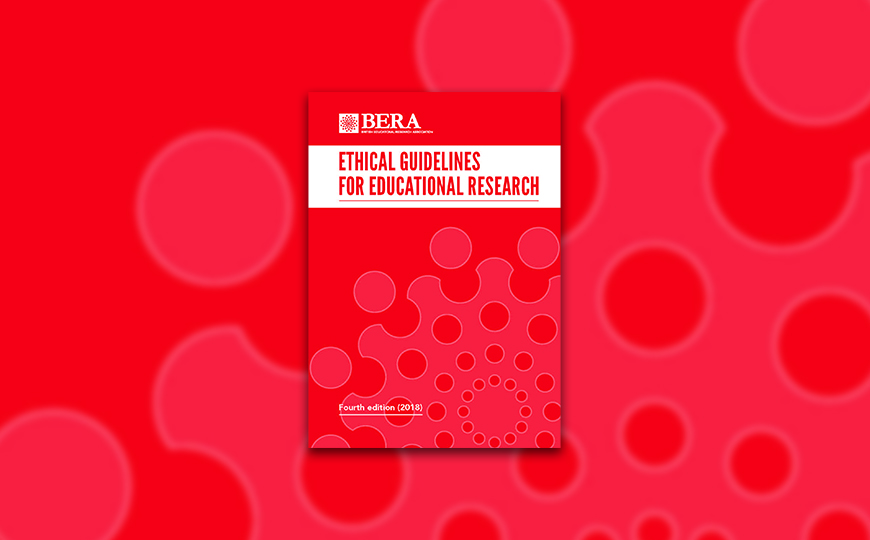Ethics
"Students should feel that they are able to opt out of a research project in a way they are not able to opt out of a lesson...or doing their homework...One of the things you have to consider is getting the balance right between making things happen in a pragmatic way and making them happen ethically"
In this video, Dr Claire Tyson discusses the ethical considerations one must take when conducting research with young people in schools:
BERA (British Educational Research Association) - Ethical Guidelines for Educational Research (2018)
This extensively revised, expanded and updated fourth edition is designed to support educational researchers in conducting research to the highest ethical standards in any and all contexts. They unequivocally recognise and celebrate the diversity of approaches in educational research, and promote respect for all those who engage with it: researchers and participants, academics and professional practitioners, commissioning bodies, and those who read and utilise the research. Without being prescriptive, they represent the tenets of best ethical practice that have served our community of researchers well in the past, and will continue to do so in the future. This edition has been updated to take account of the many new developments that have affected educational research since the publication of the third edition in 2011, including the rise of social media and online communities, new legislative requirements, and the growing impact on our research of internationalisation and globalisation. It also includes a wealth of links to other resources on ethics, legislative requirements and best practice.

BERA - Ethical Guidelines for Educational Research, 4th ed. (2018)
Click hereLink opens in a new window for an online version of the guidelines.
Further Reading
-
Felzmann, H. (2009) ‘Ethical Issues in School Based Research’ Research Ethics Review, 5(3), p. 104-109.
-
Alderson, P. (1995) Listening to Children. Children, Ethics and Social Research, London: Barnardos.
-
Morrow, V. and M. Richards (1996) ‘The ethics of social research with children: an overview’, Children and Society, 10, p. 90–105.
-
Brown, A. and Fox, A. (2013) 'Thinking ethically to support practitioner research', Professional Development Today, 16(1), p. 52-58.
-
Konza, D. M. (2012) 'Researching in Schools: Ethical Issues', International Journal of the Humanities, 9(6), p. 77-86.
- Bray, L. (2007) 'Developing an activity to aid informed assent when interviewing children and young people', J Res Nurs, 12(5), p. 447-457.
- Ford K., Sankey J., and J. Crisp (2007) 'Development of children’s assent documents using a child-centred approach', J Child Hlth Care,11(1), p. 19-28.
- Tait A., Voepel-Lewis T., and S. Malviya (2007) 'Presenting research information to children: a tale of two methods', Anaesth Analg, 105(2), p. 358-364.
- O’Donnell L.N., Duran R.H., San Doval A., Breslin M.J., Juhn G.M., and A. Stueve (1997) 'Obtaining written parent permission for school-based health surveys of urban young adolescents', J Adoles Hlth, 21(6), p. 376-383.
- David M., Edwards R., and P. Alldred (2001) 'Children and school-based research: ‘informed consent’ or ‘educated consent’?', BrEduc Res J, 27(3), p. 347-365.
'Supporting and Supervising Research' Workshop - 29/03/2022
We proudly welcomed Geoff Lindsey onto Warwick campus to host our first WTRN workshop! Geoff met with the Warwick Research Development Liaison team to provide an in-depth discussion of the ethics, practicalities, and challenges of supporting and supervising research in schools.

